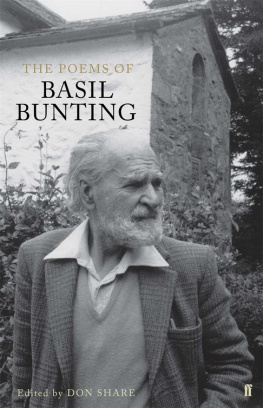Madeleine Bunting - The Model Occupation
Here you can read online Madeleine Bunting - The Model Occupation full text of the book (entire story) in english for free. Download pdf and epub, get meaning, cover and reviews about this ebook. year: 2014, publisher: Random House, genre: Detective and thriller. Description of the work, (preface) as well as reviews are available. Best literature library LitArk.com created for fans of good reading and offers a wide selection of genres:
Romance novel
Science fiction
Adventure
Detective
Science
History
Home and family
Prose
Art
Politics
Computer
Non-fiction
Religion
Business
Children
Humor
Choose a favorite category and find really read worthwhile books. Enjoy immersion in the world of imagination, feel the emotions of the characters or learn something new for yourself, make an fascinating discovery.
- Book:The Model Occupation
- Author:
- Publisher:Random House
- Genre:
- Year:2014
- Rating:3 / 5
- Favourites:Add to favourites
- Your mark:
- 60
- 1
- 2
- 3
- 4
- 5
The Model Occupation: summary, description and annotation
We offer to read an annotation, description, summary or preface (depends on what the author of the book "The Model Occupation" wrote himself). If you haven't found the necessary information about the book — write in the comments, we will try to find it.
The Model Occupation — read online for free the complete book (whole text) full work
Below is the text of the book, divided by pages. System saving the place of the last page read, allows you to conveniently read the book "The Model Occupation" online for free, without having to search again every time where you left off. Put a bookmark, and you can go to the page where you finished reading at any time.
Font size:
Interval:
Bookmark:
Contents
Madeleine Bunting was born in North Yorkshire. After studying history at Corpus Christi College, Cambridge, she won a Knox postgraduate fellowship to study and teach history at Harvard University. She worked for an independent television production company before joining the Guardian as a reporter in 1989. After a period as a leader writer, she is now a columnist. She has won several awards for her journalism and is a regular broadcaster. She has three children and lives in London.
The German Occupation is still a sensitive subject on the Channel Islands, and some islanders have been resistant towards what they perceived as my intrusive questioning of their personal histories. I hope my attempt to be balanced and charitable will repay the trust and generosity of the many islanders whose memories I have been privileged to draw on. I would particularly like to thank Dolly and Willi Joanknecht, Bob Le Sueur, Stella Perkins, Joe Miere and Bernard Hassall.
I am very grateful to Rollo and Jonathan Sherwill and their family for kind permission to read the private papers of Sir Ambrose Sherwill. Sir Peter Crill, the Bailiff of Jersey, agreed to allow me access to the Jersey Occupation Archives while they were being held by the Jersey police, and members of the force were extraordinarily helpful in accommodating my requests.
I owe much to the meticulous research of local historians who have generously shared their knowledge with me at different times over the last five years, including Michael Ginns, Brian Bonnard, Brother Andrew Marratt-Crosby, Richard and Margaret Heaume and Colin Partridge. M.R.D. Foot kindly helped to put the Channel Islands Occupation within a wider context of occupation and resistance in Europe. I am grateful to my husband Patrick Wintour and to Adam Curtis for long, enlightening discussions in which the central ideas of this book were formulated. Thanks are also owed to Dr David Cesarani, Dr Anthony Glees, David Batty, Martin Doerry of Der Spiegel, Colin Izod, historian Peter King, David Millward and David Goodhart, all of whom helped the books progress at key points. Despite the seemingly arcane interest of the Occupation for a newspaper, the Guardian has encouraged my enthusiasm and the editor, Peter Preston, generously gave me leave to complete the research for this book. Thanks also to my editor Richard Johnson and my agent Andrew Lownie for gently nudging me on, and my copy editor Robert Lacey, whose invaluable work has saved me from many heinous errors.
I have been lucky to have the help at different times of several able and enthusiastic researchers: Jamie Coomarasamys Russian and Dorothea Slevogts German were essential; Sharon Garfinkel gave up much time to plough through archives; Karen Haith and Euan Mahy kindly helped on Guernsey, where Odette Paul provided a warm welcome.
I am very grateful to the survivors of the slave labour camps. Norbert Beermart, Otto Spehr and Ted Misiewicz all gave me a warm welcome to their homes in Belgium, Germany and London, and delved deep into painful memories to answer my questions. Mr Misiewiczs comments on drafts of Chapter Five were much appreciated. My greatest debt is to Galina Chernakova and Georgi Kondakov for their invaluable work in tracing survivors of the slave labour camps. The warm welcome in Russia and Ukraine which all the survivors and their families gave me will long remain my most powerful recollection of writing this book. It is to them Georgi Kondakov, Albert Pothugine, Kirill Nevrov, Ivan Kalganov, Alexei Ikonnikov, Alexei Rodine, Ivor Dolgov and Vasilly Marempolsky, and to the memory of all those of every nationality who did not survive the islands occupation that this book is dedicated.
When the Germans arrived on the Channel Islands after the defeat of France in the summer of 1940, they and the islanders agreed that it would be a Model Occupation. But as the war dragged on and Britain appeared to abandon the islands to their fate, so features of Nazi occupation already widespread throughout Europe emerged. There were love affairs between island women and German soldiers, betrayals and black marketeering, individual acts of resistance, feats of courage and endurance. Every islander was faced with uncomfortable choices: where did patriotism end and self-preservation begin? What moral obligation did they have to the thousands of emaciated and ill-treated slave labourers the Nazis brought among them to build an impregnable ring of defences around the islands?
The hardback publication of The Model Occupation in 1995, the fiftieth anniversary of the Liberation of the Channel Islands, provoked considerable controversy there. Foremost amongst the points that irritated islanders was my handling of the question of what happened to the small number of Jews on the islands. The ensuing controversy in the local newspapers, particularly the Jersey Evening Post, usefully served to bring considerably more information to light, and this warrants a new appendix.
Finding out what had happened to the Jews on Jersey was difficult during my original research. In part this was because not much was genuinely known about what happened to them. There were about twenty Jews who remained after Jerseys most prominent Jewish families evacuated to Britain. Those who stayed behind were mostly elderly or recently arrived, relatively isolated refugees with few friends amongst the islanders. Few books on the Occupation have referred to the difficulties these Jews experienced during the war A Doctors Occupation by John Lewis is one exception whether because they did not speak of their persecution, or because they did not wish to publicise the fact, is impossible to say.
Some of the Jews who had been on Jersey during the Occupation left after the war, others died of old age. When Jerseys Jewish community reconstituted itself in the decades after the war, it was presumed that there had been no Jews on the island during the Occupation. It has only been in the last few years that this assumption has been challenged and members of the community have discreetly researched the subject.
They were not helped by the fact that on Jersey, unlike Guernsey, few documents on the subject appear to have survived. The few letters referring to the registration of Jews which did exist were amongst those Bailiffs war files stolen in 1991. To date, they do not seem to have been recovered.
Broaching the question in an interview immediately provoked suspicion that I was muck-raking. It was not a subject local historians had chosen to look into. Michael Ginns, immensely knowledgeable on the Occupation, insisted that no harm had come to any British Jews.
But unexpectedly in January 1995, the file on Jerseys Jews belonging to the Chief Aliens Officer, Clifford Orange, came to light in the State Greffiers Office a form of registry office in St Helier. It provides the most detailed set of documents on the persecution of the Jews in the Channel Islands to date.
In October 1940 notices were published in the local newspapers ordering all those with grandparents who belonged to the Jewish religion to present themselves for registration at the islands Aliens Office. Twelve people were subsequently registered by Clifford Orange, who questioned them on their Jewish ancestry. A number of Jews, aware of the danger, did not register, including the stepsisters Suzanne Malherbe and Lucille Schwab, a Mr Harvey and two Azulay sisters who claimed to be Methodists. They all survived the Occupation undetected, although Schwab and Malherbe were imprisoned for resistance activities.
Many of the twelve who registered were very uncertain as to their Jewish origins, and Orange carefully made notes of their conscientious explanations of their ancestry. Several had not lived on Jersey long. Seventy-year-old Victor Emmanuel had come from Hamburg, Germany, twenty-one months before. John Max Finkelstein (sixty-eight) and Nathan Davidson had come from Romania and had lived on Jersey for eight years and five years respectively. Orange annotated Davidsons form: Mr Davidson has stated that he has always belonged to the Christian community, and so far as he is aware, his father did also. Believes that one of his grandparents was a Jew, but knows nothing about the others.
Next pageFont size:
Interval:
Bookmark:
Similar books «The Model Occupation»
Look at similar books to The Model Occupation. We have selected literature similar in name and meaning in the hope of providing readers with more options to find new, interesting, not yet read works.
Discussion, reviews of the book The Model Occupation and just readers' own opinions. Leave your comments, write what you think about the work, its meaning or the main characters. Specify what exactly you liked and what you didn't like, and why you think so.

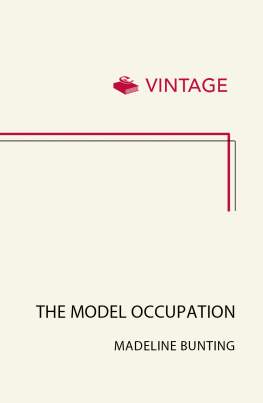
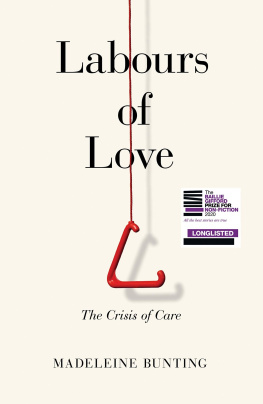


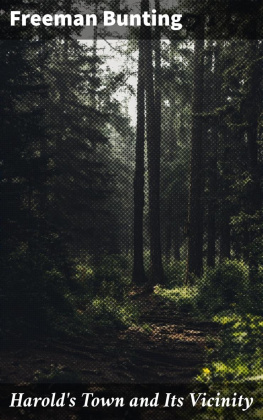
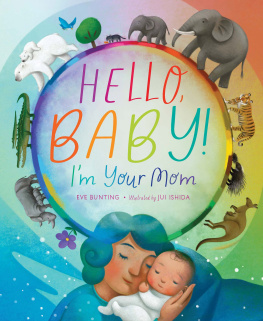

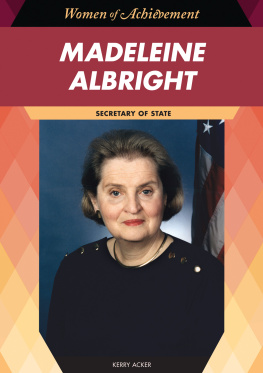
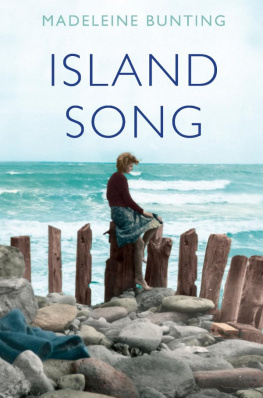
![Madeleine Bunting [Madeleine Bunting ] - Willing Slaves](/uploads/posts/book/142225/thumbs/madeleine-bunting-madeleine-bunting-willing.jpg)
